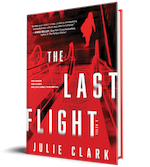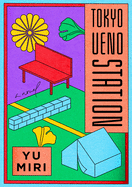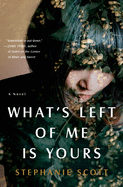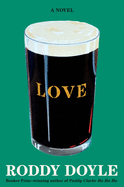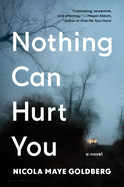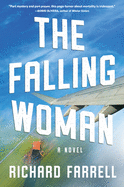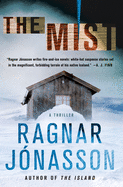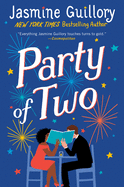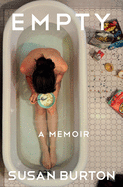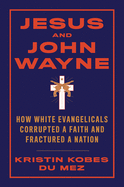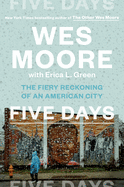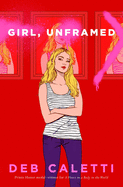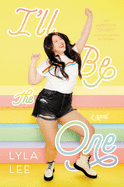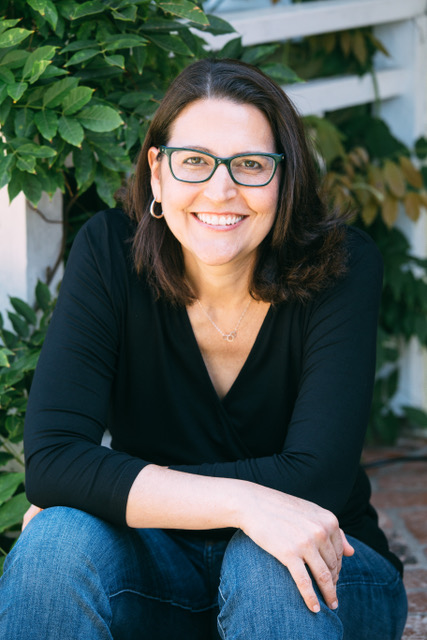 |
| (Eric A. Reid Photography) |
Julie Clark teaches school and lives in Santa Monica, Calif., with her two young sons and a goldendoodle. Her debut novel, The Ones We Choose, was optioned for television by Lionsgate. Clark's second novel, The Last Flight (available now from Sourcebooks), is about two strangers who impulsively swap identities at an airport when they realize they both need to disappear from their lives for different reasons.
When explaining why she needs to vanish instead of publicly accusing her seemingly charming philanthropic husband of abuse, Claire asks whether anyone would've believed Carolyn Bessette-Kennedy if she'd claimed John F. Kennedy Jr. was violent. Do you think people would believe her now, in the #MeToo era?
The #MeToo movement has allowed more women to come forward with their stories, which is great, but there are still too many people who question a woman's motives when calling out a powerful man's abuse. I think women have to work harder, be louder and have more evidence than might be expected of a man. And even when they do, justice isn't always served.
Claire is reluctant to come forward not just because she isn't sure people would want to believe the worst of her husband, but also because she knows speaking out would take a very personal and traumatic experience and push it into the public realm. It would be talked about on news shows, social media, and appropriated in a way that can often re-traumatize a victim over and over again.
The book isn't only a thriller; it's also an exploration of identity, love and loneliness. Claire and Eva are strangers, but they also know something about the other that no one else does, which makes them confidantes, in a way.
One of the most satisfying parts of writing this book was playing around with the many ways Eva and Claire share a space in the world. They're in only one scene together, yet they are irrevocably connected. That Claire can have such an unvarnished and intimate understanding of who Eva is makes the two intertwined in a way that feels intensely personal. I love writing the shift characters make from judgment to understanding, because it forces us to challenge the assumptions we make about the people in our lives.
Whose POV was easier to write?
They were both challenging in their own ways. For Eva, much of the book is written in the past, as we grow to understand how she got to this place in her life where she needs to disappear. I was able to explore backstory and really flesh it out, but you risk slowing the story down. So the trick with Eva was to weave all of that emotion into a story that pushes the reader forward, as they try to figure out who Eva is and how her story dovetails with Claire's.
Claire was easier to write because the stakes for her are automatically high. The tension of what she's stepping into without having a full understanding of Eva's world creates a forward momentum almost on its own.
What's the most impulsive favor you've ever done for a stranger?
Probably paying for their groceries, but that's pretty tame. Which is why the scene with Claire and Eva at the airport where they decide to trade tickets felt so compelling to me. It brought up all kinds of questions: If I were running for my life, what kind of risks would I take? And the bigger one: Who would I trust?
Originally I wrote it from Claire's POV, but I couldn't make it land the way I wanted it to, mostly because she was coming from a place of utter panic, and it was really hard to get her to calm down enough to come up with something so calculating. By writing the scene from Eva's perspective, we see Claire through her eyes, and how Claire believes the idea to switch tickets is hers but also knows it's really Eva who's driving that conversation.
How much research did you do for this book? Enough to drop off the grid if you wanted to?
The research I did was not only centered on how to disappear, but also how to successfully make and sell drugs. I have a childhood friend who used to work for the FBI, and my texts to him could be concerning if taken out of context.
They included how one might obtain a high-quality fake identity, including all necessary documents (his answer: the Russian mafia is the only game in town), how to accurately describe how someone might make methamphetamines (answer: they are highly explosive and smell bad), and how drug investigations work (answer: they are long, expensive and require a lot of manpower).
I didn't go so far as to actually try to meet with anyone affiliated with the Russian mafia or a drug dealer/maker, but if you have friends in the right places, you can get a lot of information without ever having to change out of your pajamas.
How did writing your second novel compare to writing your first?
Like with my debut, I knew almost from the beginning how The Last Flight was going to end. Revision was a process of figuring out Oh, hey, this is a thriller and learning how to write one. Then learning how to blend two separate narratives and balance dual timelines.
Once I understood how the plots worked--how they switched, where they each went--I began weaving in the themes I wanted to highlight: misogyny, the power differential between men and women, emotional and physical abuse and the toll it can take on a person, and the price it sometimes exacts when someone decides to come forward.
I also wanted to make sure my characters didn't fall into the familiar trope of the unreliable female narrator. I teach young girls, and middle grade and young adult fiction are filled with amazing female role models. But when we move up to the adult category, the women in many thrillers suddenly become crazy, love-starved, unbalanced or unreliable.
So one of my primary goals with The Last Flight was to make sure I wrote two characters who are strong, smart and courageous, because someday my students will grow up and might read my books. I want to make sure they see me putting on the page what I'm telling them every day: You are capable. You matter. You can do anything you set your mind to. And don't let anyone make you feel as if you need to take up less space.
What are you working on now?
It's very early days, but the book I'm working on is about a writer whose father was a famous literary icon who only wrote one book, and the secret about him she's been guarding since she was 14. It's both a domestic suspense and a family drama about the dark places that live inside some families, how far we're willing to go to protect the ones we love, and how, even after the main players are gone, their secrets can live on and bleed down into the generations that follow. --Elyse Dinh-McCrillis
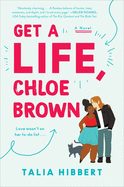 Perfectly idyllic is Get a Life, Chloe Brown (Avon, $15.99), Talia Hibbert's U.S. debut (followed by Take a Hint, Dani Brown, out today). After narrowly avoiding death by car, Chloe, a British woman of color with fibromyalgia, decides she wants more out of life. She definitely gets it, with an artist struggling with his own deep wounds. It's a sweet, witty (and sexy) story.
Perfectly idyllic is Get a Life, Chloe Brown (Avon, $15.99), Talia Hibbert's U.S. debut (followed by Take a Hint, Dani Brown, out today). After narrowly avoiding death by car, Chloe, a British woman of color with fibromyalgia, decides she wants more out of life. She definitely gets it, with an artist struggling with his own deep wounds. It's a sweet, witty (and sexy) story.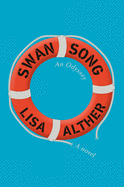 Lisa Alther's seventh novel, Swan Song: An Odyssey (Knopf, $26.95), features a late-in-life physician who boards a cruise ship as its doctor, hoping to assuage the pain of her partner's death. Our reviewer wrote that it's a wistful but resolutely unsentimental novel, "accommodating not only romantic entanglements but various characters' agonized introspection, a shipboard mystery, and sightseeing along the Mediterranean."
Lisa Alther's seventh novel, Swan Song: An Odyssey (Knopf, $26.95), features a late-in-life physician who boards a cruise ship as its doctor, hoping to assuage the pain of her partner's death. Our reviewer wrote that it's a wistful but resolutely unsentimental novel, "accommodating not only romantic entanglements but various characters' agonized introspection, a shipboard mystery, and sightseeing along the Mediterranean."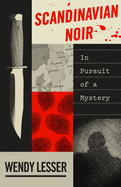 Cool off with Scandinavian Noir: In Pursuit of a Mystery (FSG, $27). As a critic, Wendy Lesser, a longtime fan of mysteries set in the Far North, here delves into the Scandinavian noir genre. As a tourist, after creating a world in her mind, she experiences the countries first-hand, comparing what she sees with the fictional realm of her imaginings.
Cool off with Scandinavian Noir: In Pursuit of a Mystery (FSG, $27). As a critic, Wendy Lesser, a longtime fan of mysteries set in the Far North, here delves into the Scandinavian noir genre. As a tourist, after creating a world in her mind, she experiences the countries first-hand, comparing what she sees with the fictional realm of her imaginings.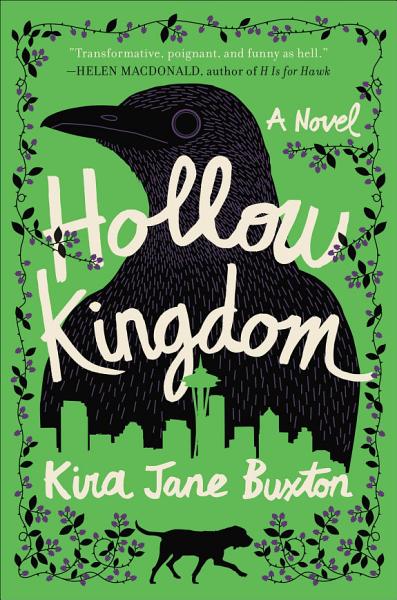 Eerily prescient, The Hollow Kingdom by Kira Jane Buxton (Grand Central, $27), follows S.T., an opinionated, profane crow, as a mysterious contagion turns the people of Seattle, and possibly the world, into zombie-like creatures. S.T. sets out with Dennis, a slightly dopey bloodhound, on a quest to free pets trapped in their homes, and to find some not-zombie humans. Buxton's novel is both a serious environmental parable and a very funny book--close to the bone can still provoke laughs. --Marilyn Dahl
Eerily prescient, The Hollow Kingdom by Kira Jane Buxton (Grand Central, $27), follows S.T., an opinionated, profane crow, as a mysterious contagion turns the people of Seattle, and possibly the world, into zombie-like creatures. S.T. sets out with Dennis, a slightly dopey bloodhound, on a quest to free pets trapped in their homes, and to find some not-zombie humans. Buxton's novel is both a serious environmental parable and a very funny book--close to the bone can still provoke laughs. --Marilyn Dahl


